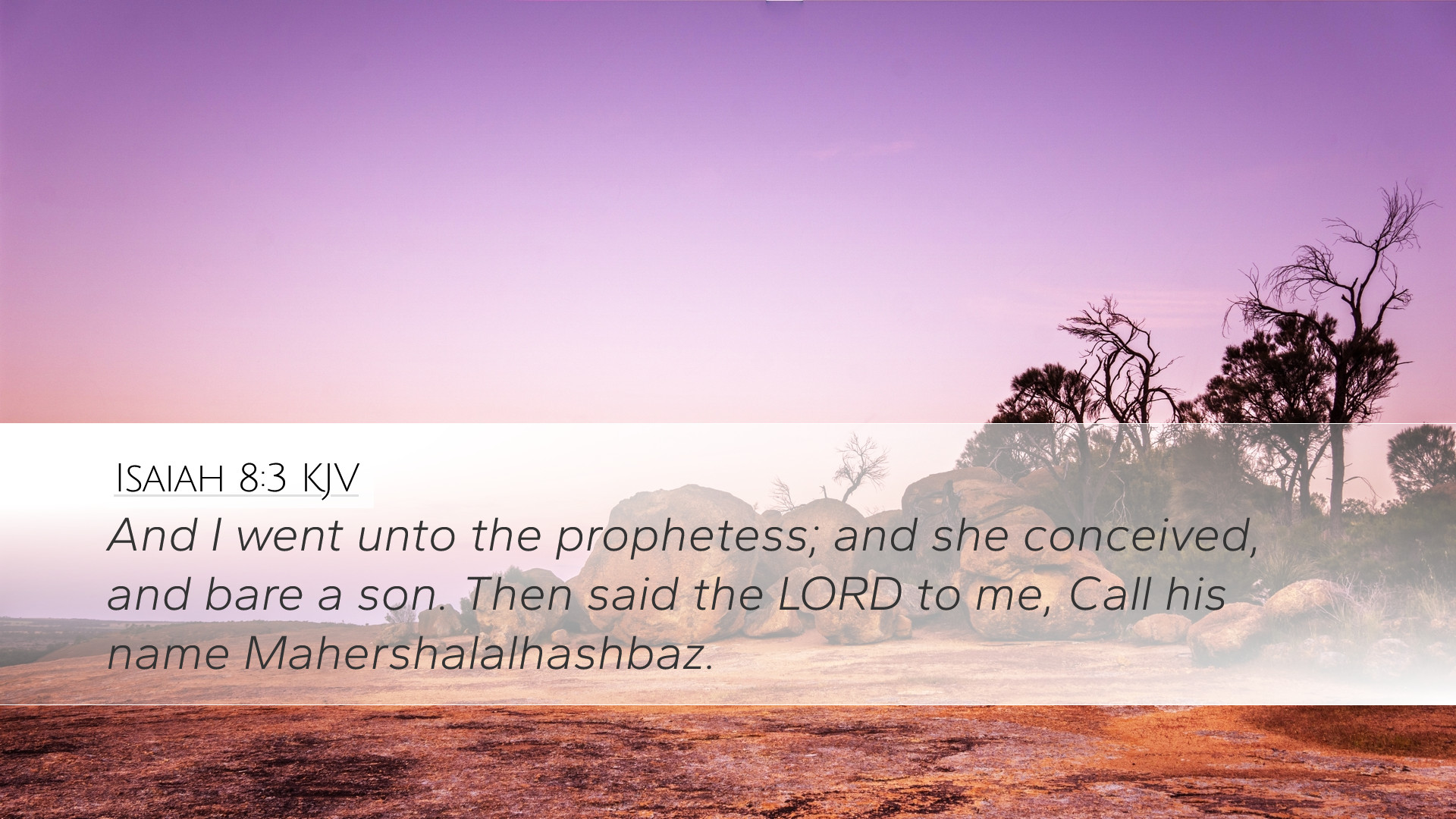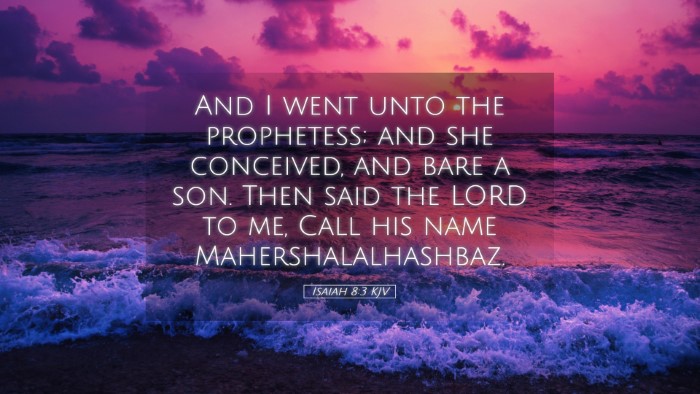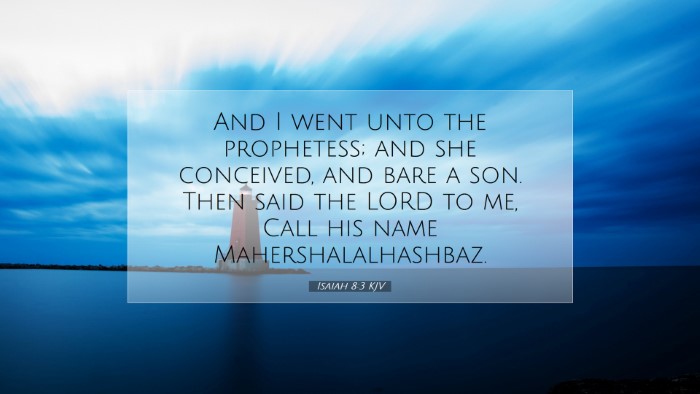Isaiah 8:3 Commentary
Isaiah 8:3 states: "And I went unto the prophetess; and she conceived, and bare a son. Then said the LORD to me, Call his name Mahershalalhashbaz."
Context and Background
This verse falls within a significant period of prophetic activity in Isaiah’s ministry. The context is crucial as it illustrates God’s means of communicating not only through Isaiah’s prophetic oracles but also through familial experiences.
- Historical Setting: During Isaiah’s time, the kingdom of Judah was facing immense pressure from Assyria and internal tumult. Isaiah’s prophecies often responded to these socio-political crises.
- Symbolism of Names: The name "Mahershalalhashbaz" represents something beyond its immediate identity; it is emblematic of the urgency and impending judgment coming upon Israel.
The Prophetic Act
Isaiah’s act of going to the prophetess symbolizes a direct response to God’s command. Matthew Henry notes that the prophetic act of having a son is akin to the prophetic sign acts that permeated Isaiah's ministry.
Divine Instruction
God instructs Isaiah to name his son Mahershalalhashbaz, which means "swift is the booty, speedy is the prey." This name reveals God's intention and the necessity of judgment upon the nations:
- Judgment Against Enemies: Albert Barnes elaborates on the name, highlighting that it signifies the speed with which God would bring judgment upon the enemies of Israel, particularly emphasizing the looming threat of Assyria.
- Comfort for the Faithful: Conversely, Adam Clarke points out that the naming signifies God's faithfulness to His people, assuring them that while judgment falls, there remains hope for those who trust in the Lord.
Theological Implications
Theologically, this verse has profound implications regarding God’s sovereignty and the duality of His judgment and mercy:
- Sovereignty of God: This highlights God's ultimate control over nations and events, asserting that even in tumultuous times, His plans are being fulfilled.
- Meaning of Prophetic Symbolism: The act of naming a child as a prophetic symbol speaks to the permanence and weight of God's messages through signs and omens.
- God's Duality of Justice and Mercy: This verse encapsulates the tension within Isaiah's prophecies—the certainty of judgment must be balanced with the assurance of redemption for the remnant.
Exegesis and Application
In exegesis, one must consider how Isaiah’s personal life intersects with his role as a prophet:
- Personal Experience as Prophecy: This illustrates the intertwining of Isaiah’s personal life with divine revelation, suggesting that the trials he faced paralleled the experiences of the nation.
- Call to Faithfulness: For contemporary readers, this serves as a reminder of the necessity to remain faithful, even amidst trials, as Isaiah’s experience can inspire believers to seek God’s guidance actively.
Conclusion
Isaiah 8:3 serves as a vital reminder of God’s proactive engagement with His people through signs, names, and prophetic acts. It underscores the serious nature of divine revelation — that what is spoken or named carries deep meaning and imperative action. Scholars, students, and pastors should reflect on this text not only in historical terms but also in its ongoing implications for faith and conduct today.
The act of naming the child Mahershalalhashbaz encapsulates God's message of both urgent warning and hopeful redemption, underscoring the need for vigilance in a world fraught with spiritual peril.


